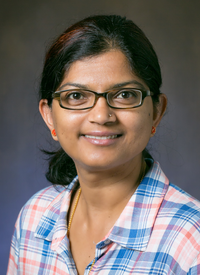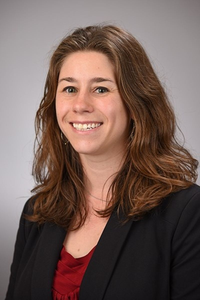Sexual Dimorphism in the Liver
Nov
08
2025
Convention Center: Room 146B, Level 1
2:00 PM
- 3:30 PM
World Class Speakers
Description
Presenters review recent advances in our understanding of sexual dimorphism in the liver and its contribution to liver growth, metabolism, and disease. The concepts covered by the thought leaders and content experts include the effect of sex hormones on hepatocyte proliferation and sex-specific differences in metabolic demands. They also cover concepts of sexually dimorphic responses in specific chronic pathologies including MASLD and HCC. Sex as a biological variable is often overlooked, which can result in delayed or inappropriate treatment. However, because the liver responds differently in males and females, this important variable needs to be considered both in experimental design and interpretation.Journey Maps
Presentations
2:00 PM
- 2:15 PM
Nov
08
2025
Washington, D.C.
Sphingosine Kinase 2 in Sexual Dimorphism of Hepatocellular Carcinoma
Chris Green, PhD
, Presenter
Basic Science
2:15 PM
- 2:30 PM
Nov
08
2025
Washington, D.C.
Sexual Dimorphism in Advanced Chronic Liver Disease
Jordi Gracia-Sancho, PhD, FAASLD
, Presenter
Basic Science
2:30 PM
- 2:45 PM
Nov
08
2025
Washington, D.C.
Role of Sex Hormones in Nuclear Receptor Signaling
Grace L Guo, MBBS, PhD
, Presenter
Basic Science
2:45 PM
- 3:00 PM
Nov
08
2025
Washington, D.C.
Impact of Estrogen on Regulation of Nuclear Receptors
Sayeepriyadarshini Anakk, PhD
, Presenter
Basic Science
3:00 PM
- 3:10 PM
Nov
08
2025
Washington, D.C.
Sexual Dimorphism in Pregnancy-induced Liver Growth and Involution
Anisha Jain
, Presenter
Basic Science
3:10 PM
- 3:20 PM
Nov
08
2025
Washington, D.C.
Sex Differences in the response to Cyp2e1 Deletion
Jessica H Hartman, PhD
, Presenter
Basic Science
Objectives
- Discuss the importance of studying sexual dimorphism in liver disease.
- Describe recent advances in our understanding of sexual dimorphism in the liver and its effects on disease progression.
- Explain the role of nuclear receptors in regulating differences in gene expression and disease severity between males and females.
Chair
Kari Nejak-Bowen, MBA, PhD
University of Pittsburgh
Chair
Wen-Xing Ding, MD, PhD, FAASLD
University of Kansas Medical Center






